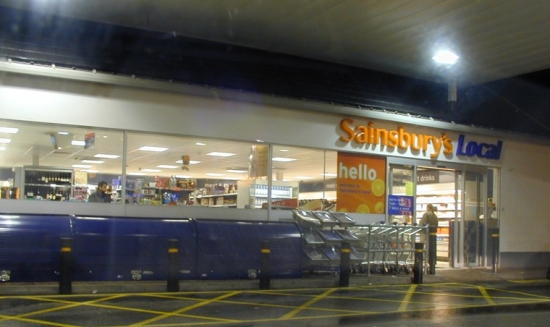Sainsbury’s now owns and operates more Local convenience stores than traditional supermarkets for the first time in its history.

The brand this week opened its 594th convenience store in Balsall Common, Coventry, and is continuing to set a rapid pace for convenience store openings with the average rate standing at 2 per week.
Focusing its efforts upon its convenience stores certainly seems like the logical step for Sainsbury’s if it wishes to continue its successful run of quarterly growth.
Although the brand experienced a slowing in like for like sales over Christmas, with an increase of only 0.2 per cent, this was largely due to stagnation in larger stores as its Local sales climbed by almost 18 per cent.
Retail experts have predicted that the future of the grocery sector will largely revolve around convenience stores, with industry body IGD forecasting a rise in the value of the convenience sector from the present £35.6 billion to £46.2 billion by 2018.
This, claims Radobank retail analyst Marc Kennis, is combining with the rise of online shopping to create a nation of “hybrid consumers” who order a smaller weekly shop online then pick up necessities from convenience stores during the week.
He continues; “The hybrid consumer trend is reinforced more than ever right now with consumer preference for both premium and non-premium food items.
“As we continue into 2014, and as consumer spending power remains tight, the hybrid consumer’s purchasing habits will likely impact on retail trends throughout the year.”
Sainsbury’s is only the latest supermarket group in which convenience stores have outstripped larger supermarkets. Market leader Tesco last year revealed that it would be concentrating its efforts into expanding its convenience store network into town and city centres, and now also has more convenience stores than supermarkets in its property portfolio.
Group commercial director at Sainsbury’s, Mike Coupe, believes that the chain’s customers prefer to shop “little and often” and so this flurry of convenience openings will cater more adequately to their needs.
He says; “We know the trend amongst customers is to shop little and often as this helps them stick to their budget and cut down on food waste.
“Our Local stores, with their convenient locations and emphasis on fresh food, something very much part of our heritage, are in a fantastic position to help customers do this.”
Meanwhile, it has been reported that Morrisons, which lags behind its rivals in terms of convenience stores, is considering selling 10 per cent of its freehold properties.
The move is designed to allay the fears of shareholders following a poor Christmas trading period.
Morrisons owns around 90 per cent of its £9bn property portfolio and the disposal could raise around £800m, enabling the supermarket to return a portion of the proceeds to shareholders in the form of dividends.
Previous Post
The Shard to get Sister Tower in London Bridge Expansion